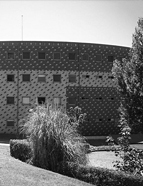

Thus, the Compendium could only deplore the grim judgement of those representing the old orthodoxy, such as that penned by the "disguised" Friar Arsénio, who relegated history to disdainful contempt. The interest in history by jurists would never be more than mere curiosity, yet it bordered on impertinence. Celebrating the value of the historical lesson on the forgotten stage of national legislation, the Historical Compendium recommended a constant fidelity to sources and recourse to the auxiliary sciences, in addition to advocating an indispensable recourse to the history of legal literature, which constituted a reliable criterion for assessing the progress of law and its teaching. The Compendium also armed itself with strong reasons to support natural law, albeit without shying away from the historical and nationalist orientation that wove it together.
Crowning the vehement censure encapsulated in the Historical Compendium, the New Statutes of 1772 brought about a true revolution in university education, particularly within the Faculties of Law and Canons. It appeared to the Pombaline legislator that without a drastic overhaul of a small ordinance, it would be impossible to dethrone the entrenched scholastic teaching, which was backed by the tremendous force of centuries-long establishment. Indeed, the reform was driven by the intention to leave nothing to the discretion of teachers and students. The Royal Charter of 28 August 1772 asserted itself as the master of all masters. It immediately challenged traditional legal education concerning the roster of the adopted disciplines, which until then had been confined to the study of the Corpus Juris Civilis and the Corpus Juris Canonici. Thereafter, the courses were initiated with a set of propaedeutic disciplines, featuring prominent historical and philosophical subjects. According to the Statutes, no law could be well understood without clear prior knowledge of both "Natural Law" and the "Civil History of Nations, and the Laws established for them," making these "preconceptions" indispensable to solid legal hermeneutics. This represented the explicit invocation of the idea of prolegomenon to history, to use a term coined by Gama Caeiro.
